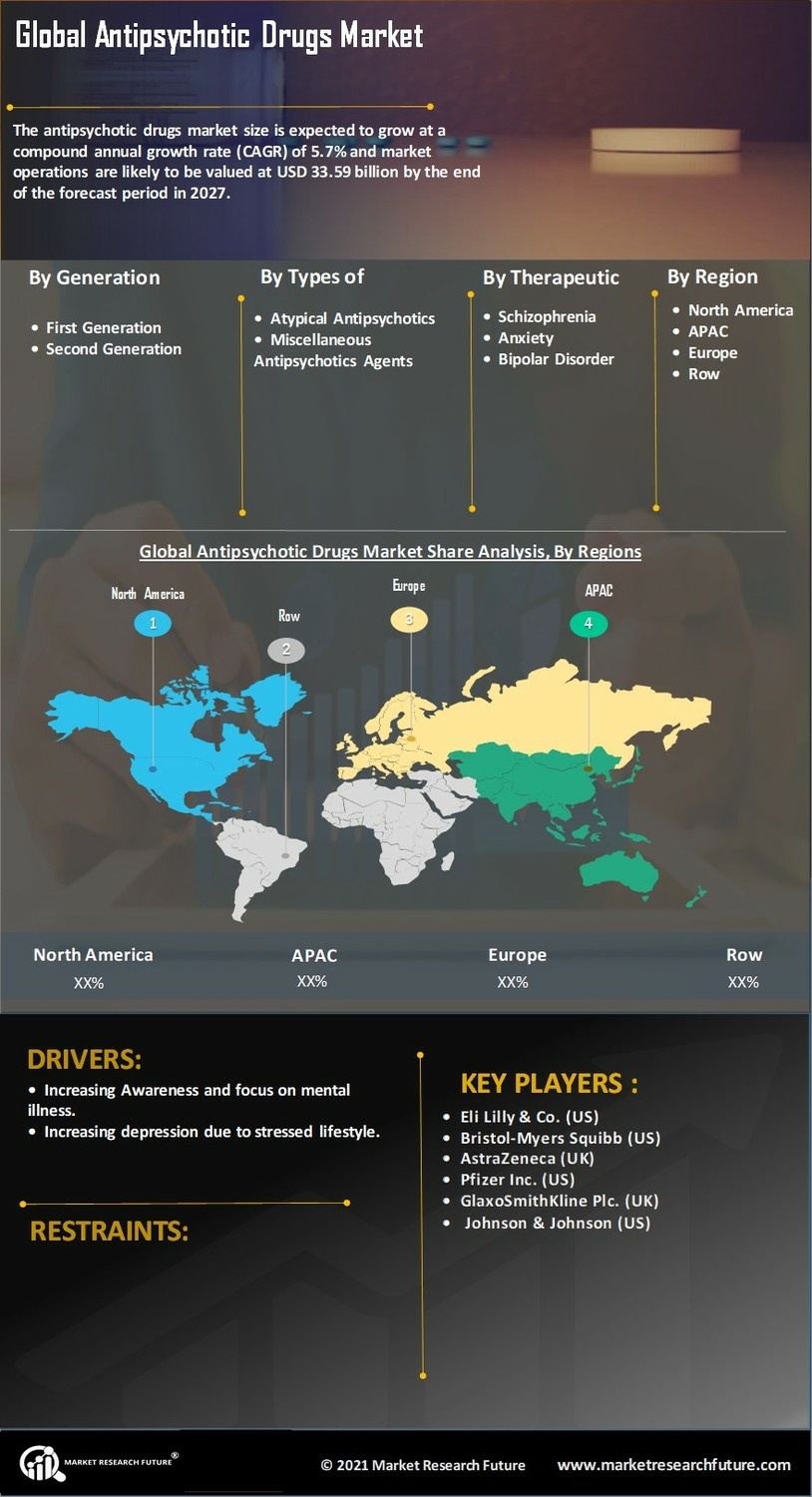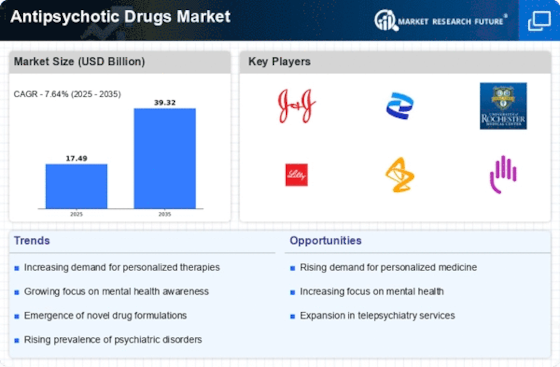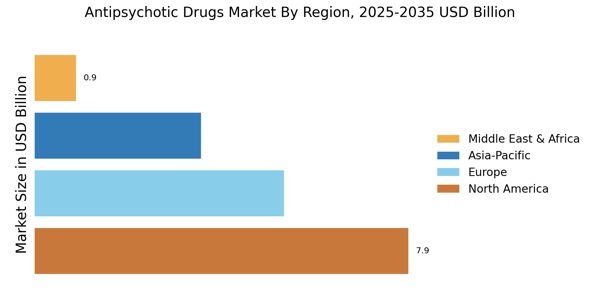Regulatory Support and Approval
Regulatory bodies are increasingly supportive of the development and approval of new antipsychotic medications, which serves as a significant driver for the Antipsychotic Drugs Market. Streamlined approval processes and incentives for pharmaceutical companies to invest in mental health treatments are becoming more prevalent. For instance, the FDA has introduced programs aimed at expediting the review of drugs that address unmet medical needs, particularly in the realm of mental health. This regulatory environment encourages innovation and investment in the development of new antipsychotic drugs, which could lead to a broader range of treatment options for patients. As a result, the Antipsychotic Drugs Market is likely to experience accelerated growth due to the influx of newly approved medications.
Innovations in Drug Formulations
Innovative advancements in drug formulations are significantly influencing the Antipsychotic Drugs Market. The introduction of long-acting injectable antipsychotics has transformed treatment paradigms, offering patients improved adherence and reduced relapse rates. These formulations are particularly beneficial for individuals who struggle with daily medication regimens. Additionally, the development of novel compounds with fewer side effects is likely to enhance patient compliance and satisfaction. Market data suggests that the long-acting injectable segment is expected to witness substantial growth, potentially reaching a market share of over 30% by 2026. This trend indicates a shift towards more effective and patient-friendly treatment options, which could further drive the expansion of the Antipsychotic Drugs Market.
Growing Prevalence of Mental Disorders
The rising incidence of mental health disorders, such as schizophrenia and bipolar disorder, is a primary driver of the Antipsychotic Drugs Market. According to recent estimates, approximately 1 in 5 adults experience mental illness each year, leading to an increased demand for effective treatment options. This growing prevalence necessitates the development and distribution of antipsychotic medications, which are essential for managing symptoms and improving the quality of life for affected individuals. As awareness of mental health issues continues to expand, healthcare providers are more likely to prescribe antipsychotic drugs, thereby propelling market growth. Furthermore, the increasing recognition of mental health as a critical component of overall health is likely to further stimulate demand for these medications, indicating a robust future for the Antipsychotic Drugs Market.
Rising Awareness and Education Initiatives
The growing awareness and education initiatives surrounding mental health are pivotal in shaping the Antipsychotic Drugs Market. Public campaigns aimed at reducing stigma and promoting understanding of mental health disorders are becoming more prevalent. These initiatives encourage individuals to seek help and treatment, thereby increasing the demand for antipsychotic medications. Furthermore, healthcare professionals are receiving enhanced training on mental health issues, which is likely to lead to more accurate diagnoses and appropriate treatment recommendations. As awareness continues to rise, it is anticipated that the number of patients seeking antipsychotic treatment will increase, thereby driving growth in the Antipsychotic Drugs Market. This trend underscores the importance of education in fostering a supportive environment for individuals with mental health challenges.
Increasing Investment in Mental Health Research
The surge in investment directed towards mental health research is a crucial driver of the Antipsychotic Drugs Market. Governments and private organizations are recognizing the importance of mental health and are allocating substantial funds to research initiatives aimed at understanding and treating mental disorders. This increased funding is likely to facilitate the discovery of new antipsychotic drugs and improve existing treatment protocols. Market analysts project that research funding for mental health could increase by over 20% in the coming years, which would significantly impact the development of innovative therapies. Consequently, the Antipsychotic Drugs Market stands to benefit from this heightened focus on research, leading to advancements in treatment options and improved patient outcomes.

















